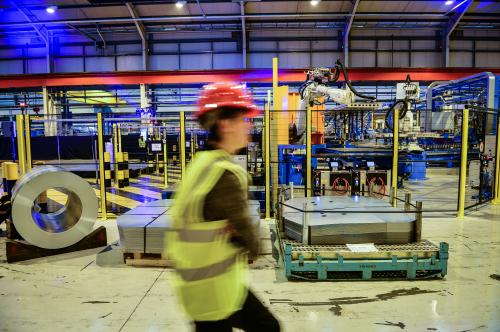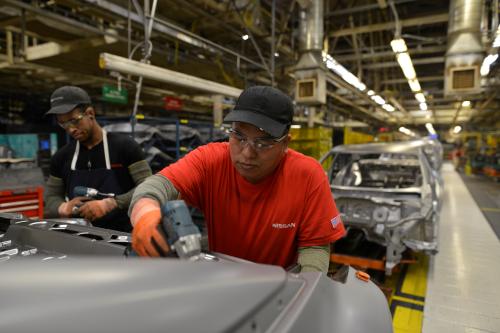Ours is a time of exciting technological change. The era of smart machines holds the promise of a more prosperous future for all. But it demands smarter policies to realize that promise. To capture potential gains in productivity and economic growth and to address rising inequality, policies will need to be more responsive to change as technology reshapes markets. And change will only intensify as artificial intelligence and other new advances drive digital transformation further—and at an accelerated pace in the aftermath of the COVID-19 pandemic.
As technology shifts market dynamics, policies must ensure that markets remain inclusive and support broad access to the new opportunities for firms and workers. New thinking and policy adaptations are needed in areas such as competition policy, the innovation ecosystem, digital infrastructure development, upskilling and reskilling of workers, and social protection regimes. Fostering wider diffusion of new technologies among firms and building complementary capabilities in the workforce can deliver both stronger and more inclusive economic growth.
Major economic reform, inevitably, is politically complex. Today’s deeper political divisions add to the challenges. But political support appears to be building in some key areas of reform, such as addressing the market dominance of tech giants and putting in place an adequate regulatory framework governing data. Crises can shift the political setting for reform. The fault lines exposed by the COVID-19 pandemic can catalyze action to address mounting economic disparities. All too often, reform is paralyzed by trite debates about conflicts between boosting economic growth and reducing inequality. Encouragingly, however, policy is increasingly being informed by research findings that show this to be a false dichotomy. In realizing the promise of brilliant new technologies, the growth and inclusion agendas are one and the same.
Download the full working paper
The Brookings Institution is committed to quality, independence, and impact.
We are supported by a diverse array of funders. In line with our values and policies, each Brookings publication represents the sole views of its author(s).








